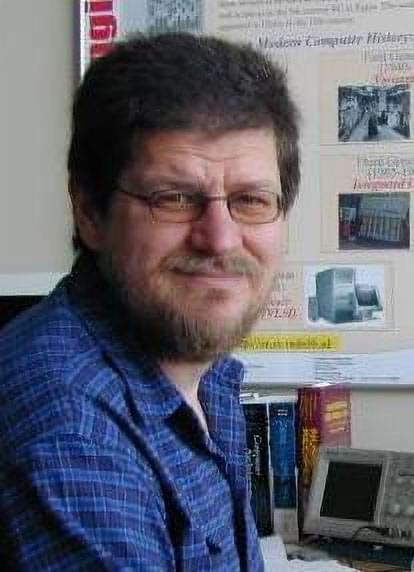Dr. Sorin Dan Cotofana
The PhysOrg.com article Tunneling Electrons Do Math said
“Using a novel computing paradigm involving counting single electrons, computer engineers have designed nano-sized circuitry that allows tunneling electrons to perform mathematical division calculations.While other methods utilizing quantum mechanical behavior have been proposed to increase computing power, these techniques have yet to take full advantage of quantum mechanical properties on the nanoscale — namely, high speed and low power consumption.
Cor Meenderinck, a PhD student in Computer Engineering, and Sorin Cotofana, an Associate Professor in Computer Engineering, from the Delft University of Technology in the Netherlands, have recently published their research on a quantum mechanical behavior called single-electron tunneling (SET) in IEEE Transactions on Nanotechnology. Building on their past SET paradigms that perform addition and multiplication operations, Meenderinck and Cotofana have presented three schemes that use tunneling electrons to quickly divide.”
Sorin Dan Cotofana, Ph.D. is Associate Professor, Computer Engineering Laboratory, Faculty of Electrical Engineering, Mathematics and Computer Science, Delft University of Technology. His research interests are: computer architecture, parallel processors, computer arithmetic, nano electronics, parallel embedded systems, hardware design of computer systems, neural networks, reconfigurable computing.
His projects are:
NanoC: The goal of the NanoC research program is to investigate the potential of emerging nano devices and deep sub-micron (DSM) CMOS as seen from circuits and systems point of view. The research focuses on four main topics:
- Single Electron based Computation
- Variation, fault and error tolerance
- Computer Aided Design (CAD)
- Design for Variability (DIVA)
σ: Speculative research, Nano computing, Chaotic Computational System, Threshold logic, Communicating Migrating Processes.
MOLEN: Computer architecture for embedded processors, reconfigurable computing microarchitectures, custom computing machines, FPGA, microcode, low power designs, application specific computer arithmetic units, SoC.
Sorin coauthored Computing Division Using Single-Electron Tunneling Technology, Addition Related Arithmetic Operations via Controlled Transport of Charge, Pel Reconstruction on FPGA-Augmented TriMedia, Microcode Processing: Positioning and Directions, Signed digit addition and related operations with threshold logic, Serial binary multiplication with feed-forward neural networks, and Delta-Bit Serial Binary Addition with Linear Threshold Networks. Read the full list of his publications! Read his conference papers!
Sorin earned his MS degree in Computer Science from the “Politehnica” University of Bucharest, Romania, and his Ph.D. degree in Electrical Engineering from Delft University of Technology (T.U. Delft), The Netherlands. He invented the patent for Determining a coverage mask for a pixel.
